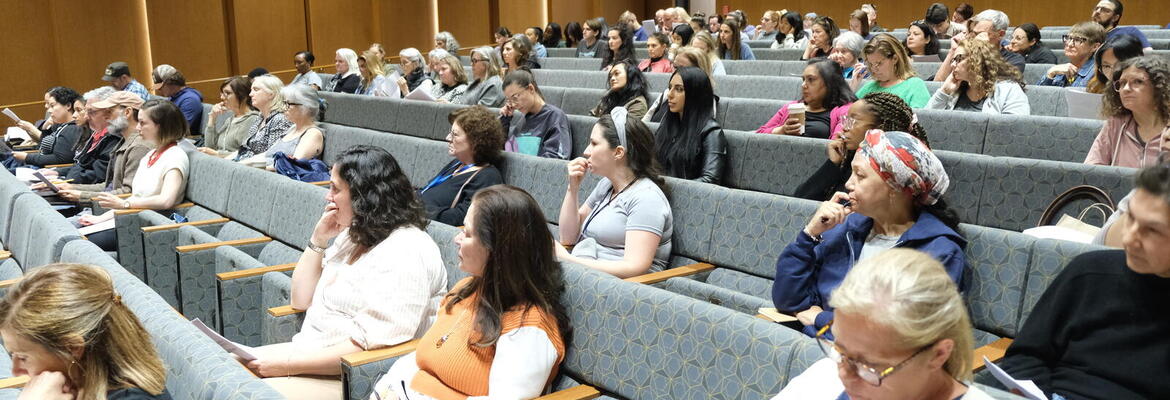YSS Lecture Series
You are here

This summer, the Yale Summer Session presents a wide-ranging series of four lectures by Yale faculty. Join us to hear from these experts in their fields!
Motherhood on Ice: The Mating Gap and Why Women Freeze Their Eggs
Marcia Inhorn, June 6th, 2023, Sudler Hall (William L. Harkness Hall). Refreshments (4-4:30 PM), Lecture (4:30-5:15 PM), and Q&A (5:15-5:45 PM).
Why are women freezing their eggs in record numbers? This lecture explores this question by drawing on the stories of more than 150 American women who pursued fertility preservation technology. Contrary to popular belief, egg freezing is rarely about women postponing fertility for the sake of their careers. Rather, the most-educated women are increasingly forced to delay childbearing because they face a mating gap—a lack of eligible, educated, equal partners ready for marriage and parenthood. In this lecture, race, religion, and the dearth of men in the lives of single women pursuing this technology will be explored. For these women, egg freezing is a reproductive backstop, a technological attempt to bridge the gap while waiting for the right partner. But it is not an easy choice for most. Women reveal the extent to which egg freezing is logistically complicated, physically taxing, financially demanding, emotionally draining, and uncertain in its effects. Through a distinctly human portrait of an understudied and rapidly growing population, this lecture examines what is at stake for women who take comfort in their frozen eggs while embarking on their quests for partnership, pregnancy, and parenting.
What is a Narrative?
Adam Sexton, June 22nd, 2023, Sudler Hall (William L. Harkness Hall). Refreshments (4:30-5 PM), Lecture (5-6 PM), and Q&A (6-6:30 PM).
Whether the topic is United States politics or global warming, we hear the word narrative often these days. But what exactly is a narrative, and how does it work? In an hour-long lecture drawn from my book Master Class in Fiction Writing: Lessons from Austen, Hemingway, and Other Greats, I will illuminate the structure and especially the function of narrative in Western Culture, from Homer’s Odyssey through the stories we share and consume in the present day. I will divide narrative into its fundamental components (scene, exposition, conflict, development, climax, and consequences) explaining which pieces are essential and which are less so and might in fact be dispensable. While acknowledging cultural variations on the form, I speculate on the possibility that shaping our experiences as narratives – telling stories to others and to ourselves – might be hard-wired. By lecture’s end, audience members will be able to spot the inner workings (and/or failings) of the stories we hear, watch, and read; even more exciting, they will be able to craft functional, and thus effective, narratives of their own.
Reason and Intuition in Medicine
Matthew Morrison, July 13th, 2023, WLH 119 (William L. Harknesss Hall). Refreshments (4:30-5 PM), Lecture (5-6 PM), and Q&A (6-6:30 PM).
In the era of the algorithm, what role remains for intuition in clinical medicine? How can we best balance a humanistic approach to the patient with the objective data? How can we utilize the humanities to deepen our approach to uncertainty? Drawing on examples from present-day medical-clinical algorithms, as well as medical writers such as Oliver Sacks and A.R. Luria, I hope to outline a case for the preservation of intuition, and the need for an ongoing balance and dialogue between rationalism and sense.
New Technologies for a Greener Planet
Dan Prober, July 26th, 2023, WLH 119 (William L. Harknesss Hall). Refreshments (4:30-5 PM), Lecture (5-6 PM), and Q&A (6-6:30 PM).
This talk describes the major technologies that are needed to reach, or approach, net-zero by 2050 in the developed world. The 3 major areas where new technology will be needed are buildings, transportation, and electricity generation (since the first 2 areas will be all-electric, as much as possible). Yale has some singular examples of energy innovation, and these will be featured. These include Kroon Hall, the most energy efficient building on campus, and the Yale Power Plant, and its successors, ground-source geothermal HVAC. Plans for future campus buildings will be discussed with pictures.
